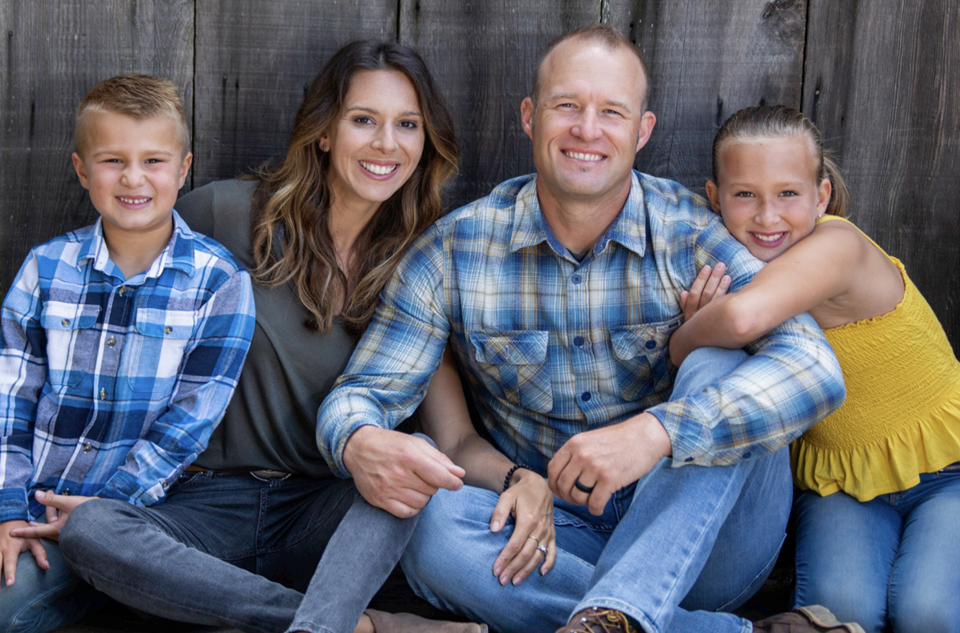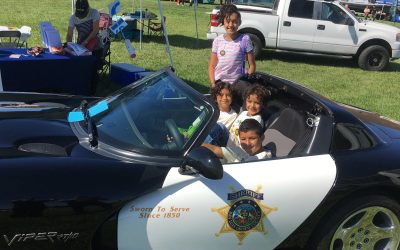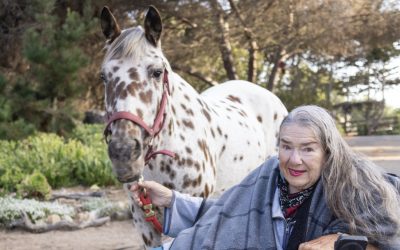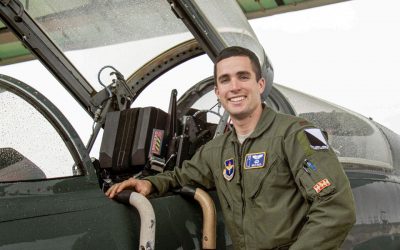My father fought fires in Philadelphia, where I grew up, from the end of WW II until 1975 when he retired as a captain. My childhood memories include many stories and visits to the fire houses where he was stationed. And, yes, I did get to slide down the fire pole and sit behind the wheel of a hook and ladder.
So it was natural for me to contact my new neighbor, Nate Bass, when I heard he was a fireman. I also remembered Nate from his years as a student at San Luis Obispo High School, where I was employed as a teacher, and then an administrator, at the time he was there. Like being an educator, I think of being a firefighter, or any profession in public safety, as a vocation, not just an occupation. On some level, one is called to it, and that was the case with Nate.
Born in San Luis Obispo in 1983, Nate is a fourth generation SLO resident. “My great-great grandmother came from Italy and we’ve been here ever since,” he said. Nate’s mother, Shari, is a member of the Kyle Roofing Company family, which has been around since the 1920s. He is also related to the Garcia family (Damon Garcia Sports Fields) through his wife, Jessica, whose mother is a Garcia.
“Her family has been here for generations as well. They still have the ranch behind the sports complex.” One of his brothers-in-law is Jimmy Quaglino, of Quaglino Roofing. “We’re well intertwined within the community. When we have birthday parties for our children, Stella and Miller, it’s sixty or seventy people and that’s not even getting into the weeds.”
Nate’s father’s family moved here from Gonzales. Tom Bass was born here and grew up racing motocross with his brother, Ron. His sister Valerie Harrigan, is a long-time employee of San Luis Coastal Unified, and, I know from experience, a great baker. Tom and Ron raced professionally while they were still in high school.
“My dad had his own plumbing business after his racing career and then worked as a steamfitter and plumber at CMC. He had an aptitude for safety and that transitioned him into the fire department out there. He eventually took over the hazmat unit and is one of the co-founders of the county’s hazmat team.”
Sports were a big part of Nate’s life while attending Bishop Peak Elementary, Laguna Middle School and SLOHS. “I played a lot of soccer, football and baseball. I don’t recall ever having an offseason. I didn’t ride motocross, but I did ride bicycles everywhere, still do.”
Nate identified his dad and his maternal grandfather, Gale Kyle, as driving forces in his life. He also acknowledged his paternal grandfather John Bass, who was a Captain at CMC and a world champion softball champion who played until he was 80. “They guided me in many ways, but the emphasis was always on family. Family always came first. Still does. We have dinner for twenty or more every Sunday at the Garcia ranch.”
When Nate was twelve his father took him to a fire drill at Camp San Luis. “I watched the fire teams walk in with their hoses on a propane prop that was on fire, and I was fascinated by it. I wanted to do that. Starting when I was fifteen, I volunteered at Station 1 every Wednesday for three years. I worked with Bill Dugger, an amazing fire mechanic who has since passed. He taught me how to wrench on a fire engine, servicing and fixing the engines.”
At eighteen Nate was hired as an apprentice fireman and he also completed all of his EMT training when he was a senior in high school and was certified before he graduated. Six months after graduation he was enrolled at the State Fire Fighter One Academy at Allan Hancock College. He also became a paid-call firefighter for Cal Fire 12 on Highway 1. He participated in drills and became part of the company. “They gave me a pager. When the pager went off I grabbed my gear and off I went. It was a good eye-opener to fire service.”
After completing his training at Hancock, Nate was hired as a resident firefighter for the South Bay Fire Department in Los Osos. He was nineteen. “I lived at the firehouse, rotating with two other residents. It opened a lot of doors for me. I was fortunate to get experience and support when I was so young.”
Nate continued to test for other positions, including making it to the Chief’s list for a position in Davis. “The process is very precise, beginning with the application. Do you pay attention to details, can you follow directions? Every step is an important part of the test process: application, written examination, physical, interview.”
Still only twenty, Nate wasn’t hired by Davis, but, in 2005, at twenty-two, he was hired as a firefighter by the Paso Robles Fire Department “It was crazy competitive. There were over 400 applications for five positions, but it got me started on a thirty-year career path, exactly what I was hoping for.” He has since become an engineer and hopes to become a captain within the next few years. “My role as an engineer is to safely operate and maintain all pieces of apparatus. If I make captain, I’ll be the one calling the shots in situations we respond to.”
Being a fireman includes “a massive amount of continuing education,” Nate said. “We’re training to upkeep our knowledge and to learn about what’s new. For example, with hybrid vehicles we have to know if the vehicle is on, if it’s not, how many volts it has running through it. You have to continue to learn to be able to identify and overcome the issues in front of you. We are the Paso Robles Department of Emergency Services. We respond to medical emergencies, drug overdoses, accidents, vegetation fires, river rescues, etc. We have to be prepared for everything.”
Nate emphasized the emotional toll that being an emergency responder takes. “It’s really hard when a child’s death is involved, or at the scene of a particularly catastrophic car accident when there are multiple fatalities. Post-traumatic stress disorder has become a huge problem. Suicide is the leading cause of death for firefighters, surpassing line of duty deaths. There’s an incredible amount of expectation to operate at a high degree of efficiency at all times, making difficult and challenging decisions with significant consequences. If you don’t have a good outlet, you bottle it up and over time the pressure can become overwhelming.”
In today’s world, military, fire service and law enforcement personnel participate together in support groups. Spontaneous violence is a big contributor to mental health concerns for responders. “We now have Regional Task Force gear on all of our engines for active shooters. We train with law enforcement at schools in the hope that, God forbid it should ever happen, we can save lives. The fact that we’re even having that conversation creates stress.”
Nate has completed all the training he needs to qualify to become a captain. “My goal was to spend ten years as a firefighter and ten years as an engineer to learn everything I could about those roles, and then ten years as a captain. I want those twenty years in the ranks so that people trust me when I’m making important decisions.”
“My family is the reason I’m here, doing what I love. My wife has been beyond supportive since we started dating when we were nineteen. She’s a wonderful mother and runs a very successful business of her own, Acacia Creek Home Staging. I joke that I move furniture for a living and moonlight as a firefighter. My kids are doing great. They’re the rock; they’re the anchor that helps me make sense of it all. There are days when I come home confused, tired, angry, and sad and I don’t know exactly why. They make it easy for me to address all of it.”
I remember mornings when my father would come home from a night shift and spend a long time staring into a cup of black coffee at the kitchen table. We knew it had been a rough night. I am grateful for men like him, and men like Nate Bass, who dedicate their lives to protecting ours.





